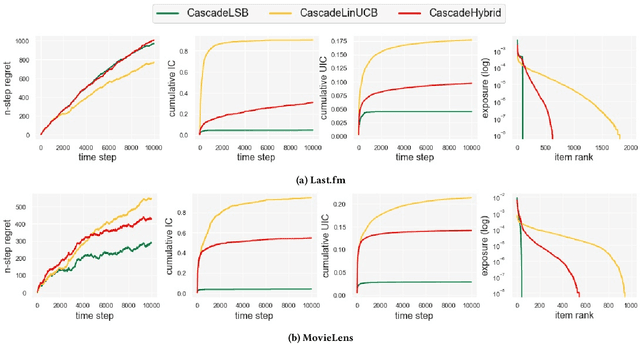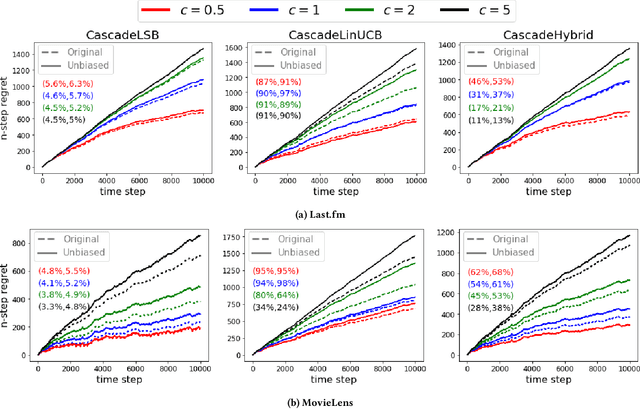Unbiased Cascade Bandits: Mitigating Exposure Bias in Online Learning to Rank Recommendation
Paper and Code
Aug 07, 2021


Exposure bias is a well-known issue in recommender systems where items and suppliers are not equally represented in the recommendation results. This is especially problematic when bias is amplified over time as a few popular items are repeatedly over-represented in recommendation lists. This phenomenon can be viewed as a recommendation feedback loop: the system repeatedly recommends certain items at different time points and interactions of users with those items will amplify bias towards those items over time. This issue has been extensively studied in the literature on model-based or neighborhood-based recommendation algorithms, but less work has been done on online recommendation models such as those based on multi-armed Bandit algorithms. In this paper, we study exposure bias in a class of well-known bandit algorithms known as Linear Cascade Bandits. We analyze these algorithms on their ability to handle exposure bias and provide a fair representation for items and suppliers in the recommendation results. Our analysis reveals that these algorithms fail to treat items and suppliers fairly and do not sufficiently explore the item space for each user. To mitigate this bias, we propose a discounting factor and incorporate it into these algorithms that controls the exposure of items at each time step. To show the effectiveness of the proposed discounting factor on mitigating exposure bias, we perform experiments on two datasets using three cascading bandit algorithms and our experimental results show that the proposed method improves the exposure fairness for items and suppliers.
 Add to Chrome
Add to Chrome Add to Firefox
Add to Firefox Add to Edge
Add to Edge